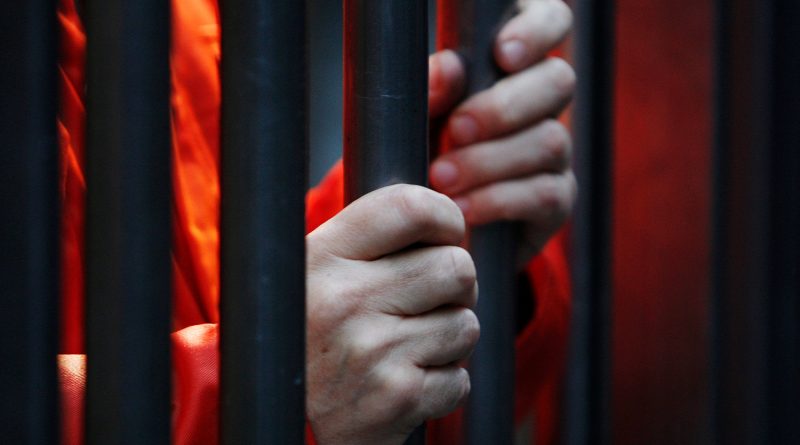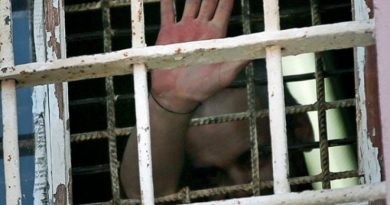Uzbekistan: disabled person was accused of theft and tortured
The International Partnership for Human Rights (IPHR) and the Association for Human Rights in Central Asia (AHRCA) issued a statement in defense of Alexander Trofimov, a 29-year-old father of two children and registered with a disability.
On May 6 and 7, 2021, he was tortured and ill-treated by operational officers of the Chilanzar District Department of Internal Affairs in Tashkent. Human rights organizations called on the authorities of Uzbekistan to immediately conduct an effective investigation into these allegations, to publicize the findings and to bring to justice those who are reasonably identified as guilty of torture.
On May 6, Trofimov was detained in the capital on suspicion of stealing money from the Food Optimal Group (Article 169 of the Criminal Code of Uzbekistan) and taken to the District Department of Internal Affairs of Chilanzar district. The detention was registered at the District Department of Internal Affairs at 4.30 am. Then he was taken to the city police station № 8. From the mobile phone records of his mother, Galiya Trofimova, it follows that her son called her on May 6 at 6.55 from the city police station № 8.
At 8.00 am, on the same day, she saw him personally, when she brought him food; he was healthy. At about 10.00 am, Galiya Trofimova saw how her son and other suspects in the criminal case were taken from the city police station № 8 back to the pre-trial detention center of the District Department of Internal Affairs, accompanied by officers of the Chilanzar District Criminal Investigation Department.
On May 7 at 00.24, Trofimov called his mother twice from the cell, asking her to bring food and clothes. She wasn’t allowed to see her son. Later she found out that he had been tortured all this time.
According to Trofimov, he was tortured by operational officers almost two days. In the office, four or five operative officers of the Chilanzar District Department of Internal Affairs beat Trofimov with their feet, fists and truncheons on the head, body and legs. The officers forced him to do the splits, pinned him to the floor, handcuffed his hands, sat on him in turn, hit him on the back, and jumped on his back. During the beating, Trofimov entreated not to hit him on the head, explaining that he had received a head injury in 2002. Despite this, the officers of the District Department of Internal Affairs deliberately hit him in the area of craniotomy.
At some moment, they put a plastic bag over Trofimov’s head and continued beating. At the same time, he was told that he would be released as soon as he confessed to theft. They also threatened with new punishments if he informs his lawyer about this violence, cruel and degrading treatment.
Two suspects in the same case witnessed Trofimov’s torture when they were at the District Department of Internal Affairs. They were also threatened with torture if they didn’t confess.
AHRCA and IPHR are also concerned about reports of law enforcement officials falsifying detention protocols to cover up torture.
The detention log of the Chilanzar District Department of Internal Affairs records the time of Trofimov’s arrest – May 6, 2021 at 4.30 am. However, at the hearing on the preliminary detention, which took place on May 8, the Criminal Court of Chilanzar referred to the investigative documents of the Chilanzar District Department of Internal Affairs, which states that Trofimov was arrested on May 7, 2021 at 23.00.
In violation of procedural norms, the operative officers of the District Department of Internal Affairs accompanied Alexander Trofimov and other arrested in this criminal case, clearly trying to prevent them from reporting torture.
Only on May 8, shortly before the start of the hearing, lawyer Khakim Saparov was able to meet with his client. The lawyer photographed a large bruise on Trofimov’s leg, allegedly received as a result of beatings during interrogation.
At the trial, Khakim Saparov reported on the torture of his client and demanded a forensic medical examination. The judge rejected this request and, at the end of the hearing, Trofimov was sent back to the District Department of Internal Affairs. Only on May 10, he was taken for a medical examination. To date, the results of the forensic examination have not been provided either to the lawyer or to Trofimov’s relatives.
On May 12, the City Criminal Court of Tashkent rejected Trofimov’s appeal on the application of a measure of restraint to him in custody, ordered by the court on May 8.
As of this writing, the authorities of Uzbekistan have done nothing to investigate allegations of torture that deserve serious attention. The signatories note that in the case of Alexander Trofimov, judges, prosecutors and investigators ignored the provisions of article 26 of the Constitution of Uzbekistan and article 17 of the Criminal Procedure Code prohibiting torture.




